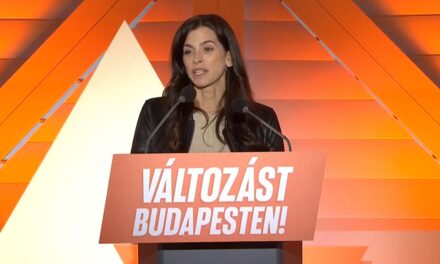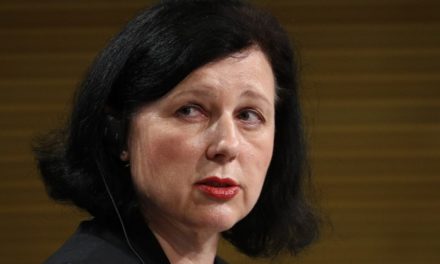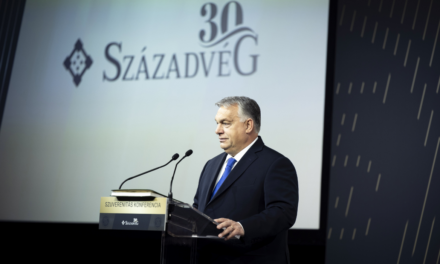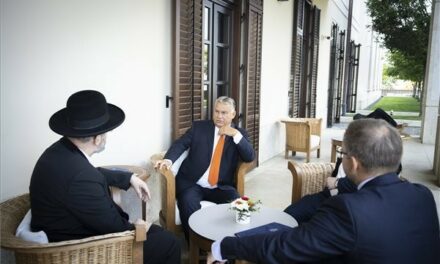Brussels politicians are lobbying on the side. The European Parliament recently decided on an independent body to check conflicts of interest, but this proposal was rejected.
The European Union is often called the bastion of transparency and ethical governance, yet recently more and more people are raising their voices because of irregularities surrounding the side incomes of parliamentarians.
According to a recent analysis, one third of the representatives have side income, which in many cases amounts to significant amounts, regardless of the fact that the monthly gross salary of 11,000 euros should in principle ensure their independence.
According to analyzes by the German SPIEGEL, ZDF and the Austrian Standard, 216 of the 717 members of the EU Parliament reported side income, which amounts to a total of 6.3 million euros per year. According to the analyses, German representatives lead the way in terms of side income, earning a total of nearly 1.3 million euros in this way.
Four of the top ten MPs with additional income are German, including Engin Eroglu, Manfred Weber, Angelika Niebler and Stefan Köhler.
For example, Engin Eroglu admittedly earns 177,500 euros a year from renting real estate, while Manfred Weber, the president of the European People's Party, receives nearly 170,000 euros for his position as president. Angelika Niebler, who has been a Member of Parliament since 1999, earns an additional 170,000 euros a year with her consulting work. Köhler, a newly elected member of the EU Parliament, earns 50,000 euros a year as the president of the Bavarian Farmers' Association.
Although side income is not prohibited, it can raise significant conflicts of interest.
Angelika Niebler, for example, works for the law firm Gibson, Dunn & Crutcher, which acts as a lobby group in the EU. The office lobbies on matters such as the Renewable Energy Directive, while Niebler sits on the Industry, Research and Energy Committee. Such situations inevitably raise the question: can any influence be measured in these matters?
Similarly, Stefan Köhler's relationship with the Bavarian Farmers' Association is also worrisome, as the association is one of the EU's strongest lobbying organizations. Köhler actively participates in the work of the EU's food safety and agricultural committees, while the farmers' association lobbies for EU agricultural subsidies.
Since 2012, EU parliamentarians have been required to disclose their private interests and side jobs. However, the data is often inaccurate or incomplete, which raises further questions about transparency.
The European Parliament recently decided on an independent body to check conflicts of interest, but this proposal was rejected.
According to the European Union's transparency register, there are nearly 12,000 lobby organizations representing various industries, interest groups and multinational companies. Organizations such as BusinessEurope or DigitalEurope regularly lobby for the relaxation of economic regulations, while other groups, such as European civil society organizations, try to exert influence in the fields of human rights and environmental protection.
Recently, several corruption scandals have highlighted how deeply rooted the influence of lobbying and money is in EU decision-making. The Qatargate scandal, for example, showed how a foreign state tried to gain influence through European representatives.
Péter Magyar's representatives also often meet with foreign lobby organizations. Based on a review of the meetings of Tiszás MP Kinga Kollár, it can be seen that she regularly consults with the organization VÖWG.
This is not surprising, as the VÖWG is an extremely active Austrian lobby organization that represents the interests of actors in the Austrian public and social economy, both at the national and European level. Its activities are regulated by Austrian lobbying laws. Kinga Kollár met with this organization in October and November, and in one of her first parliamentary speeches, she already spoke about the need to build rental apartments in Hungary based on the Austrian model.
Eszter Lakatos, also from Tisza, is not left behind when it comes to meetings with lobby organizations and representatives of multinational companies. As an MEP, he often consults with representatives of multinational companies such as Johnson & Johnson, Mastercard Europe, the Consortium for BatteryInnovation and KPMG, presumably together with other MEPs.
What is particularly noteworthy is that Eszter Lakatos' staff has already organized a meeting with representatives of the US State Department and the American Chamber of Commerce and Industry.
Cover photo: Péter Magyar and Kinga Kollár
Source: Facebook/Kinga Kollár













